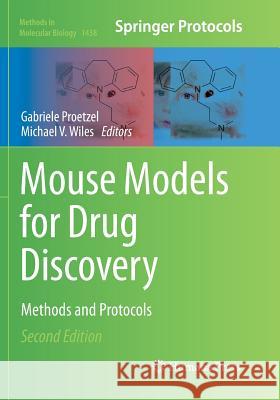Mouse Models for Drug Discovery: Methods and Protocols » książka
topmenu
Mouse Models for Drug Discovery: Methods and Protocols
ISBN-13: 9781493981090 / Angielski / Miękka / 2018 / 436 str.
Kategorie BISAC:
Wydawca:
Humana Press
Seria wydawnicza:
Język:
Angielski
ISBN-13:
9781493981090
Rok wydania:
2018
Wydanie:
Softcover Repri
Ilość stron:
436
Waga:
0.77 kg
Wymiary:
25.4 x 17.78 x 2.31
Oprawa:
Miękka
Wolumenów:
01
Dodatkowe informacje:
Wydanie ilustrowane











